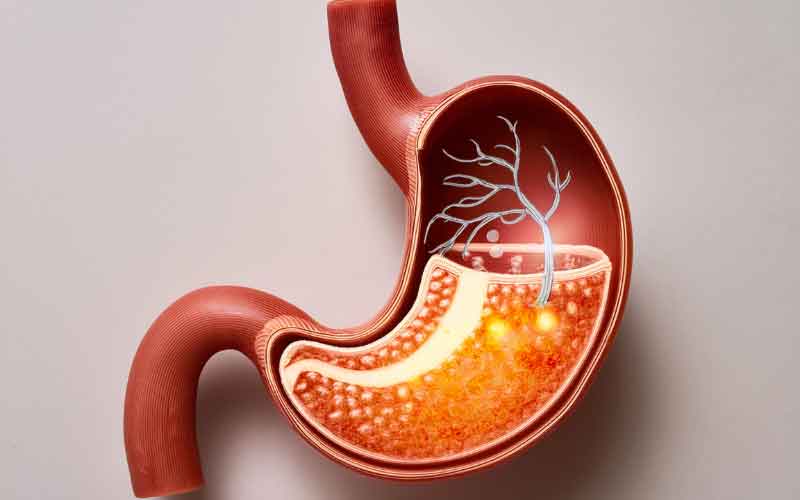Are You Producing Enough Stomach Acid?
Stomach acid, primarily composed of hydrochloric acid (HCl), plays a vital role in digestion. It helps break down food, particularly proteins, and ensures that harmful bacteria and pathogens are destroyed before they can cause harm. However, many people may not be producing enough stomach acid, a condition known as hypochlorhydria, which can lead to various digestive issues.
Why Stomach Acid Is Important
Adequate stomach acid is necessary for:
- Digesting proteins: Stomach acid activates enzymes like pepsin, which break down proteins into amino acids, a critical process for nutrient absorption.
- Absorbing key nutrients: It aids in the absorption of important nutrients like vitamin B12, iron, calcium, and magnesium. While stomach acid doesn’t directly absorb nutrients, it is essential for breaking down food and ensuring nutrients are in their absorbable forms. For example,iron, particularly non-haem (non-heme) iron (the type found in plant-based foods), needs to be transformed into a more absorbable form before it reaches the small intestine. Stomach acid helps convert iron into its ferrous (Fe²⁺) form, which is more easily absorbed in the duodenum and proximal jejunum. Similarly, vitamin B12 requires stomach acid to release it from the protein it is bound to in food. Once freed, B12 binds to intrinsic factor, a protein secreted in the stomach, allowing it to be absorbed in the ileum, the final section of the small intestine. Adequate stomach acid also facilitates the absorption of other key nutrients like calcium and magnesium, which need to be dissolved in the acidic environment of the stomach before they can be absorbed in the small intestine.
- Preventing infections: Stomach acid helps kill harmful bacteria and pathogens that enter the stomach with food.
Signs You May Not Be Producing Enough Stomach Acid
- Bloating and gas: Inadequate stomach acid can cause improper digestion, leading to excess gas and bloating after meals.
- Heartburn and acid reflux: Contrary to popular belief, low stomach acid can cause these symptoms. Without enough acid, food sits in the stomach longer, creating pressure that leads to reflux.
- Undigested food in stool: If food is not being properly broken down, you may notice bits of undigested food in your stool.
- Nutrient deficiencies: Poor absorption of nutrients like B12 and iron may lead to fatigue, weakness, or even anaemia.
- Frequent infections: Low stomach acid can allow harmful bacteria to survive and colonise in the gut, leading to frequent infections.
What Causes Low Stomach Acid?
- Aging: As we age, the production of stomach acid naturally declines.
- Stress: Chronic stress suppresses the digestive system, including acid production.
- Diet: Highly processed foods, low protein intake, or nutrient deficiencies (such as zinc) can impair stomach acid production.
- Certain medications: Long-term use of antacids or proton pump inhibitors (PPIs) can reduce stomach acid levels over time.
How to Support Healthy Stomach Acid Levels
- Eat mindfully: Take your time when eating and chew your food thoroughly to stimulate acid production.
- Incorporate bitter foods: Bitter greens like arugula (rocket), dandelion greens, endive, chicory, watercress and ginger can naturally stimulate stomach acid.
- Avoid overeating: Large meals can overwhelm the stomach and reduce acid production.
- Consider supplements: If recommended by a healthcare provider, digestive enzymes or betaine HCl supplements can support proper digestion.
Having enough stomach acid is essential for effective digestion and overall health. If you’re experiencing digestive discomfort, nutrient deficiencies, or suspect low stomach acid, it’s worth exploring strategies to support proper stomach acid production.

